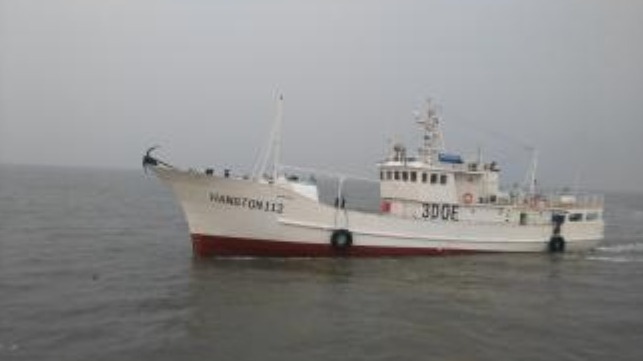CBP Adds to List of Foreign Fishing Vessels Banned for Slavery

U.S. Customs and Border Protection (CBP) is continuing to add to its list of fishing vessels whose products are banned from American markets due to suspected violations of anti-forced labor laws. The agency announced August 4 that CBP officers will now detain tuna and other seafood caught by the Hangton No. 112, a Fijian flagged, Fijian-owned, Chinese-operated vessel.
U.S. law bans imports made with convict labor or forced labor, and CBP detains shipments of goods that violate the rules. Importers of detained shipments have the opportunity to re-export their shipments or show that the merchandise was not produced with forced labor.
On August 4, CBP issued a withhold release order (an automatic cargo detention) against Hangton 112's products based on indications of the use of forced labor in the vessel’s operations. CBP identified at least three of the International Labour Organization’s 11 indicators of forced labor during its investigation: withholding of wages, debt bondage and retention of identity documents.
Hangton 112 had been previously flagged by Greenpeace and the Indonesian Migrant Worker Union for suspected abusive labor conditions in 2019. Its owner denied the allegations.
"Foreign fishing vessels like the Hangton No. 112 continue to lure vulnerable migrant workers into forced labor situations so that they can sell seafood below market value, which threatens the livelihoods of American fishermen," said CBP Acting Commissioner Troy Miller. "CBP will continue to stand up against these vessels’ abusive labor practices by preventing the introduction of their unethically-harvested seafood into the U.S. market."
The ILO estimates that 25 million workers suffer under conditions of forced labor worldwide, and the distant-water fishing industry is at particularly high risk for forced labor conditions. According to CBP, foreign companies often coerce vulnerable migrant workers to carry out hazardous labor for little or no pay aboard fishing vessels that may spend months at sea without making port calls. Out of sight and far from help, enslaved personnel on these vessels may face abuse, injury, malnutrition and - in the worst cases - even death at sea.

that matters most
Get the latest maritime news delivered to your inbox daily.
Vessel operators who are willing to enslave migrant workers may also be willing to violate fishery regulations, according to CBP. Vessels engaged in slavery are frequently linked to illegal, unreported, and unregulated (IUU) fishing, which damages ocean ecosystems and threatens the livelihoods of law-abiding fishermen.
CBP recently issued a string of withhold release orders for the products of other fishing vessels, including the Lien Yi Hsing No. 12, the Da Wang, and the Yu Long No. 2. In May 2021, CBP issued a withhold release order on seafood caught by an entire fleet owned by China's Dalian Ocean Fishing Co.
